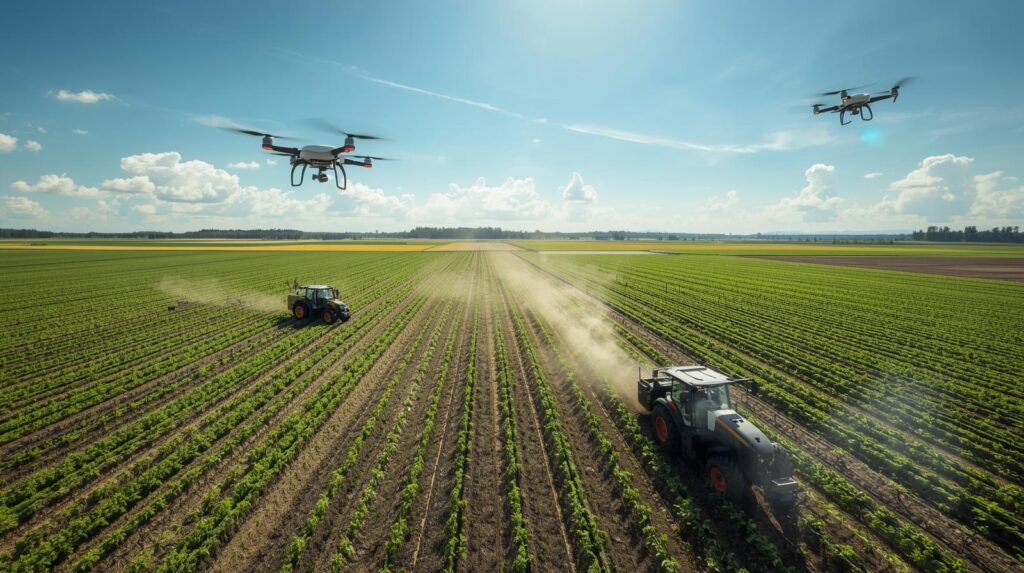AI-enabled precision agriculture represents the next frontier in modern farming, combining artificial intelligence with advanced agricultural practices to optimize productivity, efficiency, and sustainability. By leveraging real-time data, predictive analytics, and intelligent automation, farmers can make informed decisions that maximize crop yields while minimizing resource consumption. The global demand for food, coupled with environmental challenges such as climate change and soil degradation, is accelerating the adoption of AI-powered solutions in agriculture, driving significant market growth.
Download PDF Brochure @ https://www.marketsandmarkets.com/pdfdownloadNew.asp?id=1243

Role of Artificial Intelligence in Precision Agriculture
Artificial intelligence lies at the heart of precision agriculture by providing the ability to analyze complex datasets and identify patterns that would be impossible to detect manually. Machine learning algorithms can predict crop diseases, assess soil health, and optimize planting schedules. AI-driven models also enable precision irrigation, nutrient management, and pest control, reducing operational costs and improving productivity. By integrating AI into agricultural machinery, drones, and sensors, farmers can implement smarter, data-driven strategies across all stages of crop production.
IoT and Smart Sensor Integration
The Internet of Things (IoT) is a key enabler of AI-driven precision agriculture, providing continuous monitoring and connectivity across farm operations. Smart sensors embedded in fields collect data on soil moisture, temperature, nutrient levels, and crop growth. When combined with AI, this data allows for predictive analytics and automated interventions, ensuring crops receive the right inputs at the right time. IoT integration also supports precision irrigation systems and real-time environmental monitoring, helping farmers conserve water and reduce fertilizer usage while improving overall yields.
Drones and Aerial Imaging Technologies
Drones and aerial imaging technologies are revolutionizing farm monitoring and crop management. Equipped with multispectral and hyperspectral cameras, drones capture detailed images of fields to detect early signs of disease, pest infestations, or nutrient deficiencies. AI algorithms process this data to provide actionable insights, enabling targeted interventions. The adoption of drone technology in precision agriculture is expanding rapidly, as it allows large-scale farms to monitor extensive areas efficiently, reduce manual labor, and improve crop management practices.
Robotics and Automated Machinery
Robotics and autonomous machinery are transforming labor-intensive tasks in agriculture. AI-powered tractors, harvesters, and planting machines are capable of performing complex operations with minimal human intervention. These technologies improve precision in sowing, fertilizing, and harvesting while reducing operational costs and human error. The integration of robotics in precision agriculture ensures consistent performance, higher efficiency, and scalability, which is especially critical for large commercial farms seeking to optimize resource utilization and maximize output.
Big Data Analytics for Decision-Making
Big data analytics plays a crucial role in AI-enabled precision agriculture by providing actionable insights from vast datasets generated across farms. Weather data, soil characteristics, crop performance history, and market trends are analyzed to inform strategic decisions. Predictive analytics can forecast yield, detect crop stress, and optimize supply chain management. The combination of AI and big data allows farmers to implement precision strategies that reduce waste, increase profitability, and ensure sustainable production practices.
Cloud Computing and Digital Platforms
Cloud computing platforms support the AI-driven precision agriculture ecosystem by enabling seamless data storage, processing, and accessibility. Farmers can access analytics dashboards, remote monitoring tools, and AI-powered recommendations from anywhere, facilitating real-time decision-making. Digital platforms also allow integration of multiple technologies, including IoT, drones, and AI software, providing a comprehensive solution for modern farm management. This connectivity enhances operational efficiency and promotes data-driven agricultural practices on a global scale.
Future Outlook and Market Opportunities
The AI-enabled precision agriculture market is expected to experience significant growth in the coming years, driven by increasing adoption of emerging technologies, rising demand for sustainable farming practices, and advancements in AI and machine learning. Startups and established technology providers are continuously innovating to offer scalable, cost-effective solutions for farmers. Regional expansion in Asia-Pacific, Latin America, and Africa presents additional opportunities, as these regions seek to improve agricultural productivity to meet growing food demands.